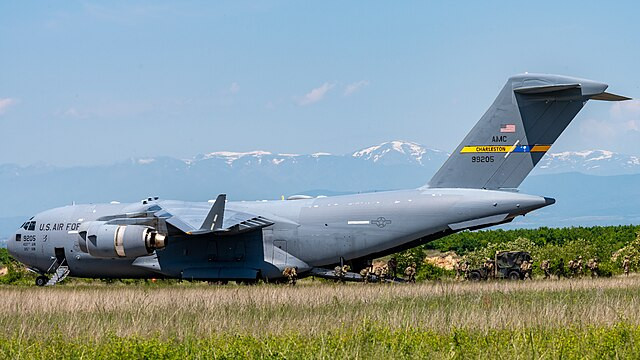A U.S. military aircraft carrying at least 104 undocumented Indian migrants landed in Amritsar, India, on Wednesday, marking one of the longest deportation flights since President Donald Trump expanded military involvement in immigration enforcement. The deportees, primarily from the states of Gujarat, Maharashtra, and Punjab, were returned as part of the administration's intensified crackdown on illegal migration.
The use of a C-17 military aircraft for the operation underscores the administration's shift in handling deportations, a policy authorized under an executive order signed by Trump last month. The order directs the Department of Defense to assist in expediting removals, with more than 5,000 undocumented migrants slated for deportation via military flights.
The deported individuals include migrants who had attempted to enter the U.S. through irregular channels, often taking dangerous routes through Latin America. Among them was 23-year-old Akashdeep Singh, whose cousin, Manriasat Singh, described his disappointment upon return. He "sounded low," Singh said. Akashdeep had spent nearly $60,000 on his journey to the U.S., with his family selling two-thirds of their land to finance the trip. Shortly after arriving in January, he was detained and ultimately deported.
Many migrants facing deportation had taken significant financial risks in search of better economic opportunities. Kuljinder Kaur, whose husband Harwinder Singh was on the flight, recounted his grueling journey. After paying over 4 million rupees (approximately $45,000) to a travel agent, Harwinder expected to reach the U.S. within two weeks. Instead, he endured ten months of transit across multiple countries before finally crossing the U.S.-Mexico border in January.
"When he crossed, he went to buy some water and was immediately picked up by the army and thrown into a detention camp," Kaur said. "Then two days ago, he was told Trump is sending him home. He was put in handcuffs and taken to the airport and put into a military flight. For hours, they didn't have access to water and couldn't even use the loo."
The large-scale deportation has sparked concerns among local officials in India. Punjab Minister of Non-Resident Indian Affairs Kuldeep Singh Dhaliwal met with the deported individuals and urged Indian Prime Minister Narendra Modi to intervene. "PM Modi, who supported Donald Trump during his election campaign, should now use his friendship to resolve the issue," he said.
The Indian government has maintained that it will cooperate with U.S. authorities on immigration matters. Randhir Jaiswal, spokesperson for India's Ministry of External Affairs, reiterated that India is "firmly opposed" to illegal migration. "I do want to emphasize that cooperation between India and the U.S. is strong and effective in this domain," he stated.
The growing number of deportations highlights a broader trend in Indian migration to the U.S. Government data shows that illegal crossings by Indian nationals surged from 8,027 in the 2018-19 fiscal year to 96,917 in 2022-23. Economic hardship and unemployment remain key drivers, particularly in Punjab, where families often invest their savings to send young men abroad in pursuit of better opportunities.
Trump has defended his administration's aggressive deportation strategy, stating last week that his policies are "putting America first" and ensuring that foreign governments "do what's right" in repatriating their citizens. The White House has faced resistance from some countries, with Mexico and Colombia initially refusing U.S. military deportation flights. However, after diplomatic pressure, including threats of tariffs and visa restrictions, Colombia agreed to accept deported nationals.
As deportations increase, families in India are grappling with financial losses and uncertainty. "The government should do something about it instead of flashing their names and villages on television," said former Punjab village leader Lakbhir Singh. "They should deal with the problem at the core of it."






